Ongoing PR campaign to deny that leftist woke policies in the military are affecting recruiting:
These are all the same report and video by a reporter that was aired on different local TV stations across the country:
Army says wokeness “relatively minor” on list of reasons people don’t enlist (KIRO News 7)
Army says wokeness “relatively minor” on list of reasons why people don’t enlist (WFTV News 9)
—Video: Army says wokeness “relatively minor” on list of reasons why people don’t enlist
Army says wokeness “relatively minor” on list of reasons people don’t enlist (CBS 47 Action News Jax)
Army says wokeness “relatively minor” on list of reasons people don’t enlist (WPXI 11)
Army says wokeness “relatively minor” on list of reasons people don’t enlist (WHIO News 7)
Army reboots classic jingle in effort to increase recruiting (CBS News)
Marine Corps Commandant Gen. David Berger says there’s ‘zero evidence’ DEI training distracts from readiness (Fox News)
NOTE: Over 2,700 comments on this article; scroll to the bottom of the page to read
Is the military too ‘woke’ to recruit? (Fox News)
Army Sees Safety, Not ‘Wokeness,’ as Top Recruiting Obstacle (AP)
–Also see: GOP Reps Demand Army Release Full Results Of Recruiting Study, Allege Leaders ‘Cherry Picked’ Data
At congressional hearing, US military leaders deny assertions force is being politicized (CNN)
House Armed Services Subcommittee on Military Personnel Holds Hearing on Senior Enlisted Leader Perspective (9 MAR 23, Transcript)
Was this a planted question by a Democrat Congressman?:
ANDY KIM: I have a couple questions about mental health related issues, but I did want to just ask a very quick question since it’s a topic that’s come up several times in this hearing. I want to just kind of quickly ask each of you. Do you have any reason to believe that DEI initiatives are negatively impacting our recruitment, our retention, or lethality of the force? Sergeant major.
MICHAEL GRINSTON: Ranking member, as I’ve previously stated in our survey, that was not the number one, two, three, four, or five reasons and how that would negatively impact our soldiers, our future recruits.
ANDY KIM: Ok. Thank you. Appreciate it. Master chief petty officer.
JAMES HONEA: Ranking Member Kim, I would echo sergeant major of the Army’s comments.
ANDY KIM: Great. Thank you. Chief master sergeant.
JOANNE BASS: I agree, sir. What I would say is back to the opening statements, I think the narrative that we are focused on that more than warfighting is what’s perhaps hurting us.
ANDY KIM: Sergeant Major Black.
TROY BLACK: I think if we focus more on war fighting and protecting the nation, I think we’ll probably see those numbers increase.
ANDY KIM: Chief master sergeant.
ROGER TOWBERMAN: Yes, sir. I agree with my teammates.
. . . . JIM BANKS: Thank you. That completes our first round. I’ve had requests for a second round. So with the permission of the ranking member, can we do a rapid fire? A second round of questions for those who would like to. I’ll begin. Sergeant Major Grinston, you’ve referenced an Army study a handful of times. The study was leaked to the media — to a Associated Press reporter but hasn’t been made publicly available. Why would the Army not be willing to publish that recruitment report, make it publicly available? [SEE: GOP Reps Demand Army Release Full Results Of Recruiting Study, Allege Leaders ‘Cherry Picked’ Data]
MICHAEL GRINSTON: I’m not sure, congressman. We’ll have to take that for the record and make sure that we can get you that. I don’t control the survey, but we have an obligation and see what we can do.
JIM BANKS: Talk about the results of this survey.
MICHAEL GRINSTON: Yes, sir.
JIM BANKS: And public testimony. Why not make it publicly available? I mean, why wouldn’t the Army be willing to do that? You also made strong comments to members of the committee suggesting that because they’re talking about the effects of DEI programs that that’s having a more severe consequence on recruitment than the actual programs themselves. If you’re willing to say that in public testimony, why wouldn’t the Army be willing to make that report public? Can you take that for the record and have the Army get back to me on that?
MICHAEL GRINSTON: Yes.
JIM BANKS: I appreciate it. With that, I yield to Ranking Member Ken.
. . . . . CORY MILLS: Thank you, Mr. Chairman. Just touching back on what I was mentioning earlier, and I’d love to hear each of you individually with a simple yes or no so we can kind of get through this. But do you feel that with the increased focus on pronoun training and DEI that it has made us a more increased lethal and ready force? We’ll start with you, sergeant major of the Army.
MICHAEL GRINSTON: You know, congressman, it’s hard to answer that with a yes or no answer.
CORY MILLS: Well, how about — I’ll simplify it. Do you feel that pronoun training translates into increased lethality of our armed forces?
MICHAEL GRINSTON: Again, it’s really difficult to answer that with yes or no. I can just say that we’re stronger and better the more inclusive we are. And it’s a testament to see the diversity of this panel.
CORY MILLS: So, I — when I served, I served with members who were born in Cambodia, lived in California. I served with people who had grown up in bad neighborhoods out of Brooklyn. I had served with people out of Alabama. It was pretty diverse. There was inclusion and we all considered ourselves to be able to bleed red, blue, and — red, white and blue.
I’m curious, you know, because when I walk through Arlington and visit friends of mine, I don’t notice that our headstones are actually lined up by race or gender or by what our religious belief is. It’s by the battlefields that we were all willing to fight and die together.
So I’m curious as to when I talk to people and say, well, why aren’t you looking to join the military?
A lot of them say, well, the military has been over politicized. Well, the military has gone woke.
Well, the military is now focused on areas that doesn’t really focus on what I care about which is being able to do things that I said that brought me in, the cool guy videos. You know, the 80 percent do stuff, 20 percent, how cool does it look. Kick doors, jump out of planes, and increase lethality to be able to take it to the enemy.
So we’re saying that this modification and that this idea that we now have the — you know, because we don’t see the recruitment videos that we once saw whenever we were all like joined in the military.
We’re saying that this new focus, this new shift, this new kind of woke ideology is not impacting recruitment and not impacting our readiness lethality. I have a hard time believing that.
Does anyone want to just address on a yes or no? And I know you, command sergeant, you — you’re more than welcome to go ahead.
JOANNE BASS: Sir, I would offer the Air Force does not have pronoun training. And sir, you know, you’ve asked where you can help us. I would offer, Congressman Mills, where we could use your help is by sharing that message that your services are not focused on any of those such training more than we are on war fighting. That is a fact I can assure you of that. We have challenges when it comes to quality of life of our airmen. That is not one of them.
On Wed, 7 Sep, USAFA Cadets received another Diversity and Inclusion briefing. During the training they were told to ask each other about their “pronouns” and counseled to use inclusive language like “partner” instead of “boyfriend” or “girlfriend” and “parents”, “caregivers” or “guardians” instead of “mom” or “dad.” They were also told not to use phrases such as “colorblind,” “I don’t see color” or “we’re all just people.” One cadet’s reaction: “It was identity politics on steroids.”
See More: Military Gender Pronoun Training (Navy, Air Force, Army)
CORY MILLS: And we have not lowered standards in any way to include things such as Ranger School where certain classes wasn’t even carrying the rooster (ph) and the mountain phase and things like this. We have maintained standards at all times. Is that what we’re saying?
MICHAEL GRINSTON: Congressman, yes, we’ve maintained our standards. And I would say that when I looked at it, there is one hour of equal opportunity training in basic training, and 92 hours of rifle marksmanship training. And if you go to OCET, there’s 165 hours of rifle marksmanship training and still only one hour of equal opportunity training.
CORY MILLS: Well, I can tell you from a person I had served with, one of my first roommates who ended up going throughout the enlisted ranks all the way through to being a major, he was training over at West Point and he was teaching squad and platoon tactics for infantrymen. And his class had got bumped because they wanted to introduce a new class which was called intro to transsexuality….
Read What People Are Saying
–
MORE: #We the People Pulse

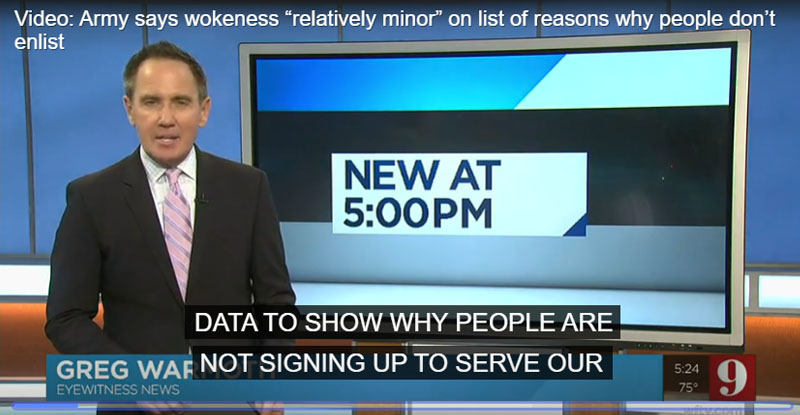
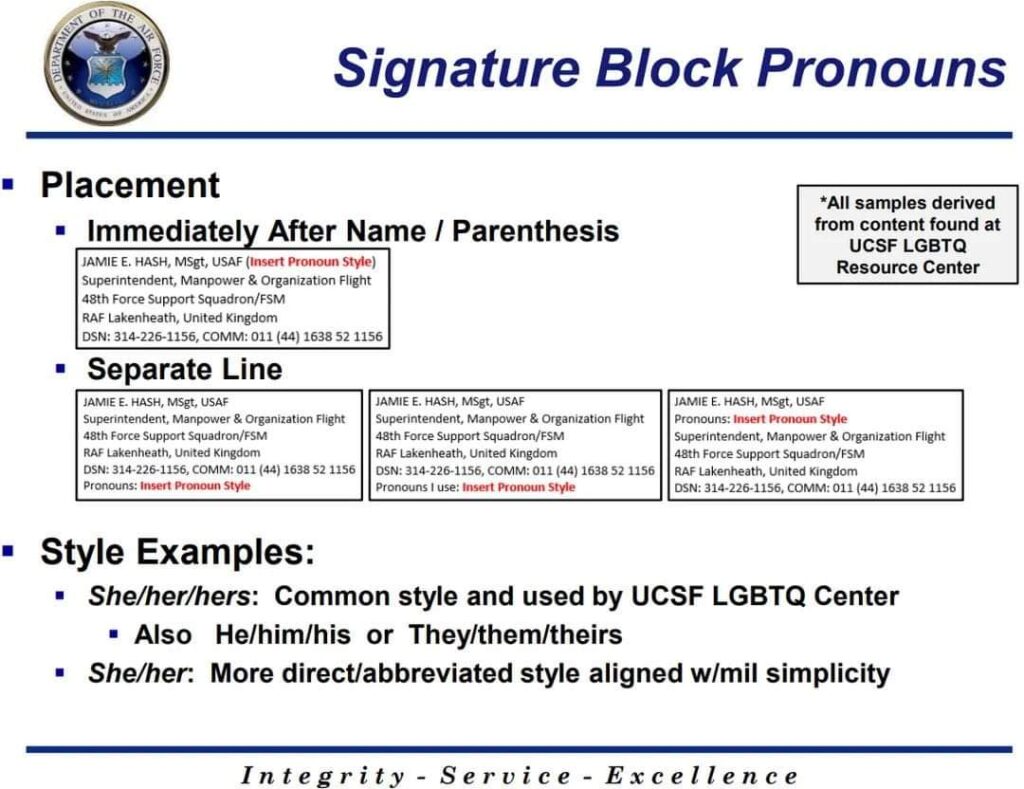

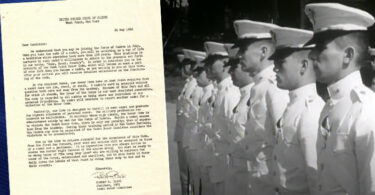
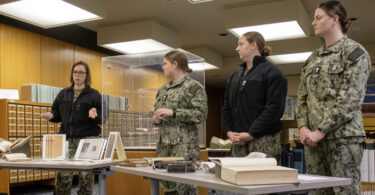
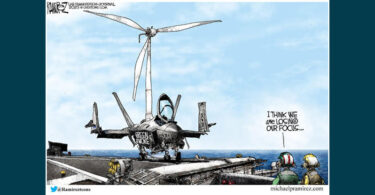

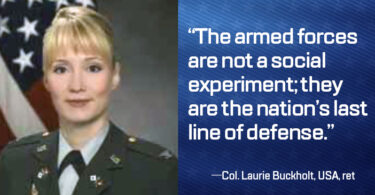
Leave a Comment